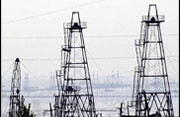Since the September 2002 Johannesburg Summit on Sustainable Development, policymakers have tried to integrate sustainable development into the energy agenda. Yet sustainable development as a conceptual approach has only recently begun to take energy into account. This has been achieved mainly through the increasing focus on "energy for sustainable development" and "sustainable energy."
Sustainable development, however, requires broad participation, enhanced by open discourse. The policy concept of cooperative energy security provides this opening.
The cooperative energy security concept emerged from research into the sources of effective international environmental protection. It is a useful framework because it provides an opportunity for rapprochement between the international environmental and energy agendas. The cooperative approach allows for a pragmatic synthesis of recent insights into learning, multilateralism, and environmental security.
Cooperative energy security for sustainable development implies a long-term balancing of energy, environment, and economic development. A balanced approach that embraces publics as well as governments and industry can bring to bear the distributed knowledge required to accomplish this task.
How is this so? Public-private partnerships have recently received much attention. These partnerships, it is argued, not only promote the development of crude oil resources but also manage political pressures for long-run transitions to natural gas and renewable alternatives. But even professional oilmen will candidly admit that the phrase public-private partnership is a misnomer. It is more accurate to speak of government-business collaboration. As such, the phenomenon is nothing new.
In the 21st century, governments increasingly face energy problems that resemble those faced by business executives over the last decade, including a rapidly changing economic and political business environment, information overload, and constant constraints on dwindling resources. This combination is deadly unless thinking begins outside the box.
For 15 years, international energy consortiums have defined pipeline projects, obtained financing, and brought construction projects to completion in an environment of extreme complexity and uncertainty: the Caspian Sea basin. Meanwhile, they are matching the pace of energy development to that of pipeline construction.
What has made it possible for the energy industry to succeed in such difficult circumstances is not any public-private partnership or internationalized state-corporatist cartel. Rather, industry leaders have managed the emergence of a new phenomenon—strategic alliances—in response to incredibly complex engineering tasks that combine economic, political, and social elements in a manner impossible to disentangle.
But how did they do it? They recognized the necessity for explicit, multilateral political engineering. There is no single public, but rather multiple publics; and the participation of multiple publics having different competences (ranging from representatives of broad public opinion to epistemic communities possessing specialized technical knowledge) is essential. Public-private partnerships have therefore given way to strategic alliances among governments, industry, and publics.
In a management context, strategic alliances between firms allow profound knowledge of the market to be combined with best technical practices. Forming such alliances is necessary to achieve an appropriate pace of project development, and also for corporate survival.
Strategic alliances are difficult to put together. They encompass more than business partnerships, which are of limited duration with specific objectives. Strategic alliances are more open-ended. To succeed, the allies must share goals, risk, control, and decision-making, through clearly defined processes. This management notion of strategic alliance also describes, in the political realm, the traditional relationship conceived in democratic theory between a civil society and government.
When civil society cannot challenge a tough government, it naturally evolves a single-issue strategy to scrutinize an important economic project so as to promote general political debate. And when internationally organized citizens cannot challenge a tough government, they challenge the private companies as a means toward that end. Thus it happens that the international dimension of a project can supersede local issues.
When that happens, the focus shifts from domestic debates between a government and homegrown NGOs to forums engaging intergovernmental organizations, especially international financial institutions. International NGOs find a voice in such forums even if they are not represented in the particular geographic locales where industry undertakes energy projects. In this manner, the constituency of scrutiny is disconnected from the constituency of concern.
This globalization of scrutiny is partly why industry engages publics. The example of the Baku-Tbilisi-Ceyhan (BTC) pipeline, from Azerbaijan's Caspian offshore to Turkey's Mediterranean coast via Georgia in the South Caucasus, illustrates the point. The construction of the BTC pipeline did not attract worldwide notice when local NGOs were addressing local concerns on technical aspects of the project. Rather, international NGOs attracted attention by conveying concerns to BP's listed markets in London and New York.
Those companies and governments that have been successful in responding to challenges are those that recognize the need for three-way coordination. There is an otherwise intolerable risk that the independent influences of the three parties will jeopardize the realization of the project.
Each of the three parties can contribute to the transition out of petrochemical energy dependency in the world economy. Governments can manage political pressures for long-run transition to natural gas, and alternative and renewable sources, while investigating their potential. Industrial firms can help to determine under what conditions alternative and renewable energy sources are a wise long-term investment. Publics can help strengthen transparency, reducing corruption and abuse while improving decision-making by bringing expert information to the table.
Global support for undertakings such as the Extractive Industries Transparency Initiative is testimony to an increasing recognition of the interdependence of the three-way strategic alliance for cooperative energy security under sustainable development. It is no accident that oil-rich Kazakhstan has officially adopted the concept of sustainable development to guide all national economic policy, not just the energy sector, and started to promote domestic NGO participation in the national dialogue.
The policy of cooperative energy security—understood to mean the three-way strategic alliance of governments, industry, and publics—only enhances the problem-solving capacities of all parties involved.
This article is licensed under a Creative Commons License.
Please read our usage policy.




